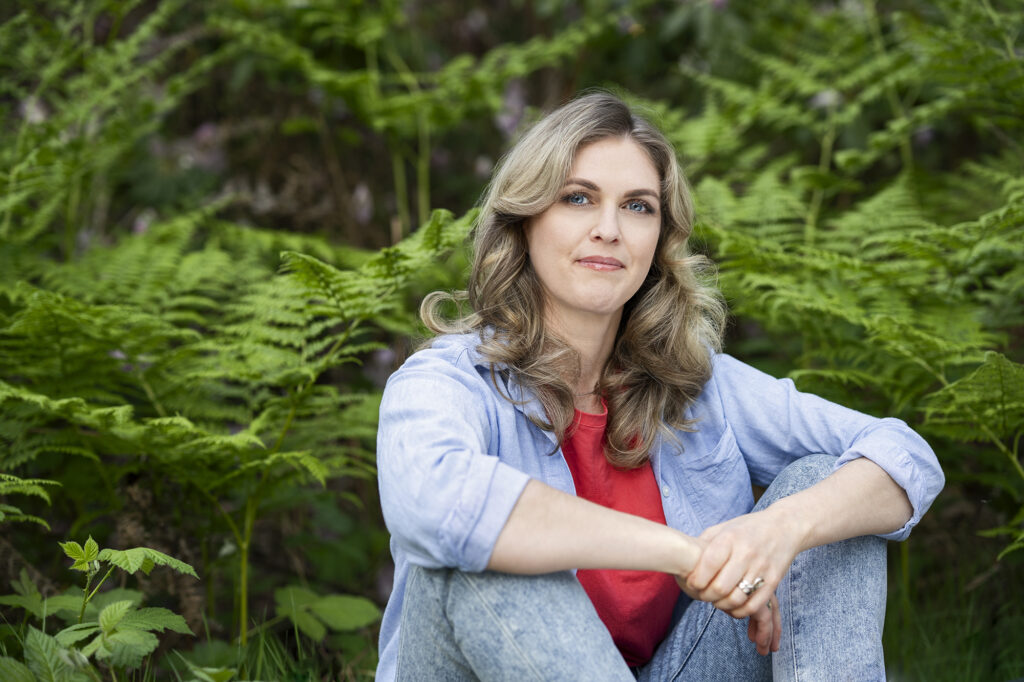If you’re facing a donor egg IVF journey for the first time, your doctor might have gently brought this option for you to consider. Or, you might just be entertaining the idea yourself based on your own search for how to potentially bring home a baby.
First, I’m here to bring compassion because that can be an emotional and overwhelming spot to sit in whether you saw it coming or not.
Second, I want to bring you clarity that the donor eggs route is not for everyone. I don’t take lightly that it’s a process to grieve and closing the door on the prospect of using your own eggs. It’s requires letting go and a journey within this journey.
Third, there are logistics and details to understand as you explore this or take more active steps in finding a donor. I have and do work with a lot of clients on the donor egg conception route and it’s important that you’re treated with your unique and personal needs being met as much as possible. Clients who work with me receive more detailed information and coaching, but I’m all about sharing what I can here on my website because if you’ve been reading my site and feel trust then I’m glad I can bring down the overwhelm in this small way.

It’s more common than you probably think. Donor egg conception is more popular and common than ever before. The first donor egg baby was born in 1984, but the rise of infertility has brought us here. The age of our uterus matters a lot less so it slows down that pressure for a lot of individuals and couples and gives hope to a lot of families. It can open up an opportunity that so many wished they’d had in the past.
Look into or speak to some donor-conceived children. There are forums and support groups (keep in mind some can be quite opinionated. This is very personal and emotionally charged) to go to as part of your search, so including this perspective might give you insight you can’t get elsewhere.
Check out donor conception resources. There are many. Support groups exist. Connecting with others who have successfully used donor eggs to have a live birth and learning from their experiences might help. Another option is to consider looking through social media account of those who have a child or children from donor eggs like @dani_repsch or @thewallacechronicles on Instagram.
Ethical dilemmas await you. Actually, this is probably not your first. It’s probably a continuation of many which involved heavy decisions that people who don’t have fertility issues don’t have to manage. Lucky you, here are more – insert the melting emoji here!
- The potential of a door egg journey might be something you’ve never thought of and cultural and religious reasons might give you pause as to what’s right for you and your community. It’s a personal decision and you might not know what your community’s stance is, so it can be a part of this time of reflection and exploration.
- If you’re deeper in your research, one consideration is whether to have anonymous, open or semi-open relationship between you and your future donor-conceived child and the donor. Again, thinking through from the perspective of your future donor-conceived child, your values and needs, and your partner’s (if applicable). This will take some educating on your part and might take some coaching or counselling.
- Think about the perspective of your egg donor. This gets complicated, such as why she wants to donate and what you’re comfortable with, but it might be a part of this decision-making. Again, this is a whole session to get into this but a factor you might want to reflect on.
Your choice of where and who to get your eggs from is basically 2 options: from a donor egg bank (frozen) or finding an egg donor who will do an egg retrieval cycle (may be able to do fresh) either known or not. The major difference is the number of guaranteed eggs from each option and if you’re looking into potentially a sibling or siblings, and success rates. There’s the option to work with a fertility clinic only, an agency, or first reach out to order eggs directly from a bank. Whether you want to try hopefully for a sibling one day factors in.
The laws in your jurisdiction makes a difference in your choices. For example, in Canada you can’t buy or sell human tissue, including ova (eggs), and Canadians who want frozen egg bank eggs work with banks in the United States directly or through their fertility clinic, or go abroad. Europe has different options across the various countries, with some more inclusive for LGBQT+ folks (Spain and Northern Cyprus) than others (Poland and Italy).
It’s expensive. There’s no way around it, it can be very expensive. It’s not in reach for a lot of people, especially the guaranteed programs.
There are often cheaper options and a variety of options abroad. This of course depends on where you live. But many people go out of the country or out of state/province for donor eggs where it’s cheaper and where they can also find a donor who looks like them, while ensuring they are healthy and meet other criteria. Race plays a role in this, with options varying from country to country.
Another decision is whether you use a double donor embryo or sperm from your partner. To get even more tricky with logistics is unless you’re single, you have a decision about using donor sperm or not. If you/your partner is supplying the sperm, then they need to have their sperm ready for fertilization so that can factor in for logistics. But, some people who aren’t same sex couples or single by choice believe that it’s important that if they’re not using one side of their genetics (eggs) that they’d prefer to create an embryo with neither side’s genetics (ie use donor sperm, too) and therefore requires donor sperm. This is called a double donor situation and opens up more to this adventure as you pick out donor sperm. This adds complexity but is also such a personal decision.
Using donor eggs means you’ll be doing IVF (in vitro-fertilization). This might have been something you’ve already done, like an egg retrieval, and maybe even an embryo transfer or more, but even if you have in the past, it’s different with donor eggs. This means decisions around whether to do ICSI, PGT-A, Zygote and what clinic to work with, among other considerations. Unless you’re using a gestational surrogate, it will be you or your partner who will also have an embryo transfer. If you haven’t done an embryo transfer before then you will learn about the unique steps such as optional tests and medication, and go through an embryo transfer procedure whether it’s fresh or frozen. If you have had transfers in the past, this might inform your decision as well. Sometimes the decision is made for you. Doing an embryo transfer does incur additional financial costs and also more decisions, and you will not be alone.
There is no timeline for what your grief will look like. This is a process and if you keep going down the egg donor route, it will continue to come up for the rest of your life, but will change overtime. There are no wrong emotions when it comes to this.
It’s usually easier to move humans than eggs. When it comes to options, such as having a fresh embryo transfer, it’s often easier for you to go there than to move the eggs to you. Moving eggs or embryos is expensive and comes with risks, but there is a lot to consider when it comes to where to house the embryos and where to do the embryo transfer.
Book a call with me if you want more support with this. One step at a time!

